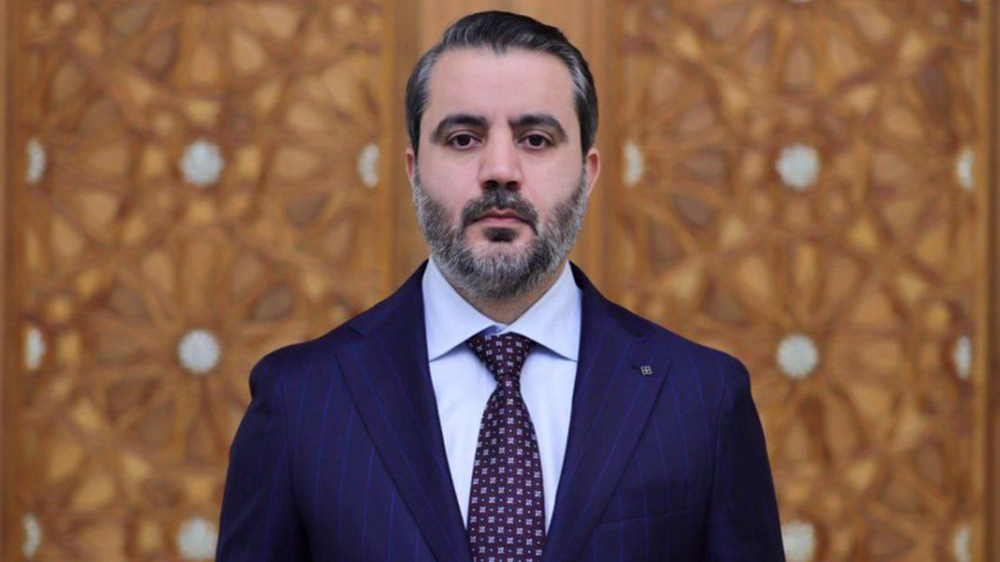Residents of ex-Daesh capital yearn for return of President Assad's rule: Report
Residents of Syria's Raqqah, which once served as the capital of the self-proclaimed “caliphate” of the Daesh terrorist group, yearn for the return of President Bashar al-Assad's rule, US magazine Foreign Policy reports.
Many Raqqah locals mistrust the Syrian Democratic Forces (SDF), a US-backed anti-Damascus alliance of mainly Kurdish militants that currently runs the Arab-majority city, the publication said.
Raqqah citizens, it added, believe that only the government of Assad can bring stability to the war-wracked city.
An activist, named by the pseudonym Hamoude, told Foreign Policy that his relatives who had fled Raqqah, said, “We will come back when the regime returns."
Daesh had once declared Raqqah as the de facto capital of a "caliphate" it started to build in Iraq and Syria in 2014 through a campaign of violence, invasion and extreme brutality against residents.
In October 2017, the United States and its SDF allies claimed victory over Daesh after carrying out a notoriously ruinous campaign in the northern Syrian city.
The Raqqah battle ended with a secret deal allowing hundreds of Daesh terrorists and their families to withdraw to neighboring Dayr al-Zawr Province.
Almost two years into the SDF occupation of Raqqah, locals "have also found SDF rule wanting" and are "cautious in expressing opposition to the SDF out of fear of retribution," according to the Foreign Policy report.
It also cited rumors among Raqqah's residents about an imminent handover of the city to the Damascus government after the liberation of Idlib Province, the last significant militant stronghold in Syria.
The report further stressed lack of basic services in Raqqah and the destruction of schools and hospitals have led locals to compare their current living conditions to their lives prior to the outbreak of the 2011 conflict.
“We used to have free water, free electricity, free bread, free schools, free hospitals. Now everything is expensive,” said Samira, an older woman from a relatively well-off family, who later professed support for the return of the Assad government.
The report also highlighted complaints by Raqqah citizens about the slow pace of the city's reconstruction process and the inadequate stabilization funding from international donors.
"Meanwhile slow reconstruction, inadequate funding, displeasure with Kurdish-led rule in an Arab-majority city, and above all a yearning for security after so many years of war are keeping the SDF from gaining widespread support in the city, according to dozens of conversations with local residents, SDF commanders, activists, and business leaders in the city," it said. "The SDF leadership finds itself unable to provide basic services due to shortage of funding, and ongoing militant attacks in the city are undermining its popular legitimacy."
Additionally, the report pointed out that decision-making power in Raqqah is "monopolized" by long-term cadres of the Kurdistan Workers’ Party (PKK) militant group.
“The cadres are always present in the committees and offices, even though they are not technocrats with specialization,” said Raqqah activist Zaid, noting, “there is clear marginalization” of locals.
VIDEO | Report flags India’s violation of rights of Rohingya detainees
Turkey's foreign minister meets Syria's de facto leader in Damascus
'Next to impossible' to rescue patients from Gaza's Kamal Adwan Hospital: Director
VIDEO | Vietnam current prosperity
Report blames gasoil exports for shortage at Iranian power plants
VIDEO | Hind Rajab Foundation names Israeli war criminals vacationing after Gaza genocide
VIDEO | Australians rally for Gaza ahead of Christmas festivities
VIDEO | Attacks on Sana'a
















 This makes it easy to access the Press TV website
This makes it easy to access the Press TV website